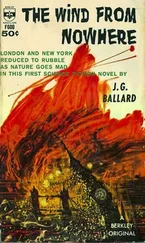In November the Chinese armies began to withdraw from Shanghai, retreating up the Yangtse to Nanking. They left behind them the devastated suburbs, which the Japanese occupied, ringing the International Settlement with their tanks and machine-gun posts. We were then safe to return to Amherst Avenue. While my parents talked to the servants I ran up to my playroom, eager to see my army of toy soldiers again.
The miniature battle of Shanghai had been swept aside. Broken soldiers lay scattered among my train set and model cars. Someone, perhaps Coolie or Number 2 Boy, had used my Robinson Crusoe as an ash tray, stubbing his half-smoked cigarettes into the cover as he watched nervously from the windows. I thought of reporting him to my father, but I knew that the servants had been as frightened as I was.
I gathered the soldiers together and later tried to play with them, but the games seemed more serious than those that had filled the playroom floor before Bloody Saturday. When David and I set out our rival armies it worried me that we were secretly trying to kill each other. Thinking of the severed hands and feet I had seen outside the Amusement Park, I put the soldiers away in their box.
But at Christmas there were new sets of soldiers to take their place, Seaforth Highlanders in khaki battle-kilts and Coldstream Guards in bearskins. To my surprise, life in the International Settlement was unaffected by the months of fighting around the city, as if the bitter warfare had been little more than a peripheral entertainment of a particularly brutal kind, like the public strangulations in the Old City. The neon signs shone ever more brightly over Shanghai’s four hundred nightclubs. My father played cricket at the Country Club, while my mother organised her bridge and dinner parties. I served as a page at a lavish wedding at the French Club. The Bund was crowded with trading vessels and sampans loaded with miles of brightly patterned calico which my father’s printing and finishing works produced for the elegant Chinese women who thronged the Settlement. The great import-export houses of the Szechuan Road were busier than before. The radio stations broadcast their American adventure serials, the bars and dance halls were filled with Number 2 and Number 3 girls, and the British garrison staged its Military Tattoo. Even the Hell-drivers returned from Manila to crash their cars. While the distant war between Japan and Chiang Kai-shek continued in the hinterland of China the roulette wheels turned in the casinos, spinning their dreams of old Shanghai.
As if to remind themselves of the war, one Sunday afternoon my parents and their friends drove out to tour the battlegrounds in the countryside to the west of Shanghai. We had attended a reception given by the British Consul General, and the wives wore their best silk gowns, the husbands their smartest grey suits and panamas. When our convoy of cars stopped at the Keswick Road check-point I was waiting for the shabby Japanese soldiers to turn us back, but they beckoned us through without comment, as if we were worth scarcely a glance.
Three miles into the countryside we stopped on a deserted road. I remember the battlefield under the silent sky, and the burnt-out village near a derelict canal. The chauffeurs opened the doors, and we stepped on to a roadway covered with pieces of gold. Hundreds of spent rifle cartridges lay at our feet. Abandoned trenchworks ran between the burial mounds, from which open coffins protruded like drawers in a ransacked wardrobe. Scattered around us were remnants of torn webbing, empty ammunition boxes, boots and helmets, rusting bayonets and signal flares. Beyond rifle pits filled with water was an earth redoubt, pulverised by the Japanese artillery. The carcase of a horse lay by its gun emplacement, legs raised stiffly in the sunlight.
Together we gazed at this scene, the ladies fanning away the flies, their husbands murmuring to each other, like a group of investors visiting the stage-set of an uncompleted war film. Led by my father and Mr Hunter, we strolled towards the canal, and stared at the Chinese soldiers floating in the shallow water. Dead infantrymen lay everywhere in the drowned trenches, covered to their waists by the earth, as if asleep in a derelict dormitory.
Beside me, David was tittering to himself. He was impatient to go home, and I could see his jarred eyes hidden behind his fringe. He turned his back on his mother, but the dead battlefield surrounded him on every side. Deliberately scuffing his polished shoes, he kicked the cartridge cases at the sleeping soldiers.
I cupped my hands over my ears, trying to catch the sound that would wake them.
All day rumours had swept Lunghua that there would soon be an escape from the camp. Shivering on the steps of the children’s hut, I waited for Sergeant Nagata to complete the third of the day’s emergency roll-calls. Usually, at the first hint of an escape attempt, the Japanese sentries would close the gates with a set of heavy padlocks – a symbolic gesture, as David Hunter’s father remarked, since anyone planning to escape from Lunghua hardly intended to walk through the front gates. It was far easier to step through the perimeter wire, as I and the older children did every day, hunting for a lost tennis ball or setting useless bird-traps for the American sailors.
Symbolic or not, the gesture served a practical purpose, like so much of Japanese ceremony. Closing the gates was a sign to any Chinese collaborators in the surrounding countryside that a security alert was under way, and told the few informers within the camp – always the last to know what was going on – to keep their eyes open.
However, the gates hung slackly from their rotting posts, and the sentries stamped their ragged boots on the cold earth, even more bored than ever. Almost all the Japanese soldiers, like Private Kimura, were the sons of peasant farmers, so poor that they regarded Lunghua, with its two thousand prisoners and its unlimited stocks of cricket bats and tennis rackets, as a haven of affluence. The unheated cement dormitories at least received an erratic supply of electric power, an unimagined luxury for the Japanese peasant.
I whistled through my fingers, trying to attract Kimura’s attention, but he ignored me and gazed at the Chinese beggars waiting patiently outside the gates for the scraps that never came. As if depressed by the untended paddy-fields, Kimura frowned at the steam that rose from his broad nostrils. I imagined him thinking of his mother and father tending their modest crops in a remote corner of Hokkaido. Neither of us had seen our parents during the years of the war, though in many ways Kimura was more alone than I was. In the panic after the Japanese seizure of the International Settlement I had been separated from my mother and father when we left our hotel on the Bund. Nonetheless, I was confident that I would see them again, even if their faces had begun to fade in my mind. But Kimura would almost certainly die here, among these empty rice fields, when the Japanese made their last stand against the Americans at the mouth of the Yangtse.
I lined my fingers on his shaven head, as if aiming Sergeant Nagata’s Mauser pistol, and snapped my thumb.
‘Jamie, I heard that.’ A tall, 14-year-old English girl, Peggy Gardner, joined me at the doorway, her thin shoulders hunched against the cold. She nudged me with a bony elbow, as if to make me miss my aim. ‘Who did you shoot?’
‘Private Kimura.’
‘You shot him yesterday.’ Peggy shook her head over this, her face grave but forgiving, a favourite pose. ‘Private Kimura is your friend.’
‘I shoot my friends too.’ Friends, surprisingly, made even more tempting targets than enemies. ‘Besides, Private Kimura isn’t really my friend.’
Читать дальше









